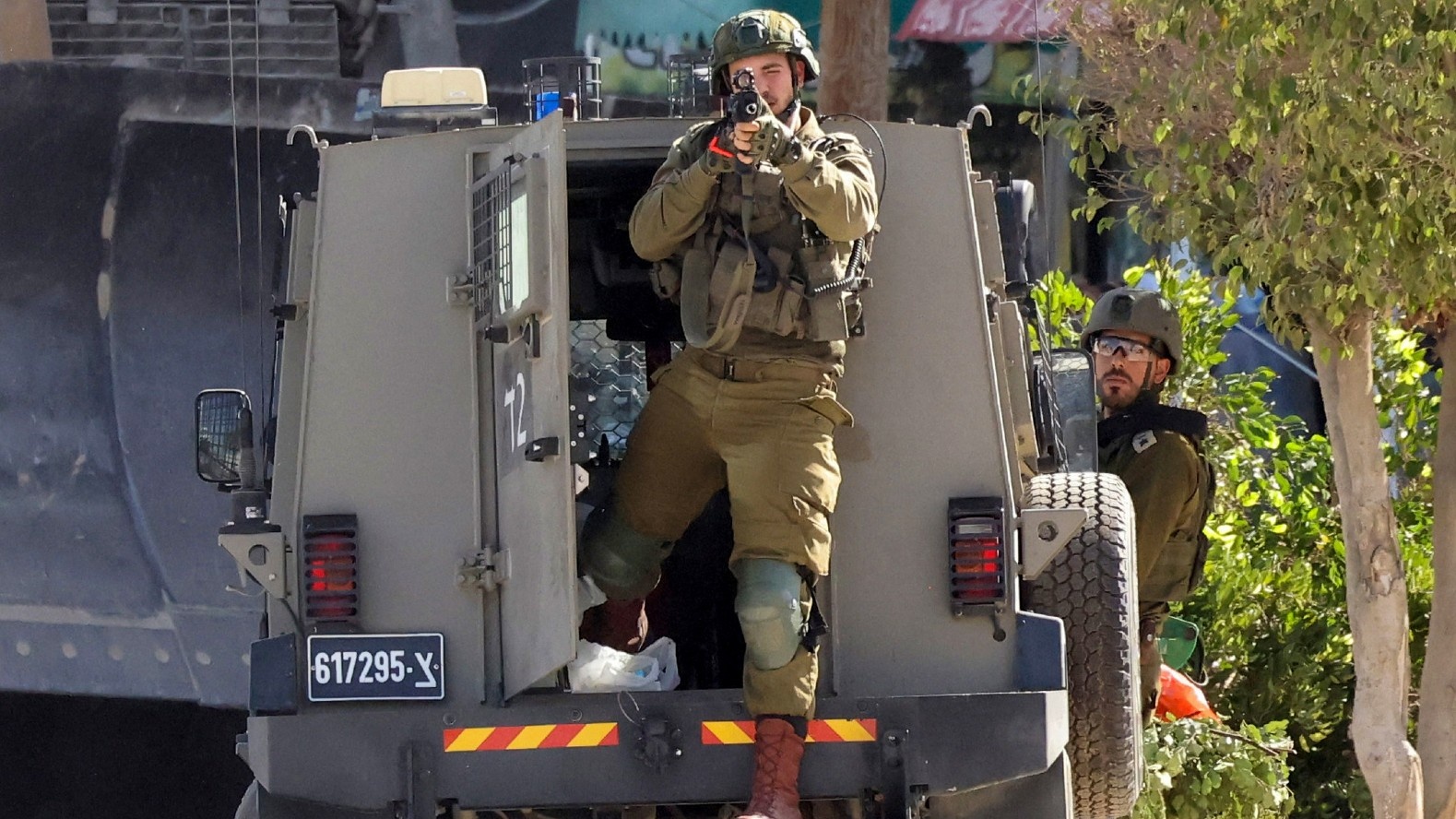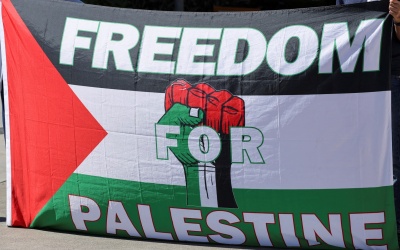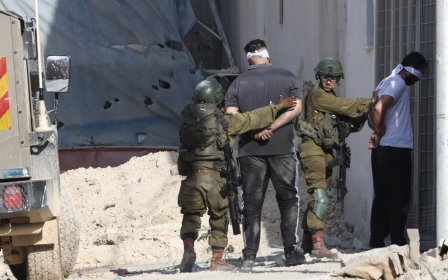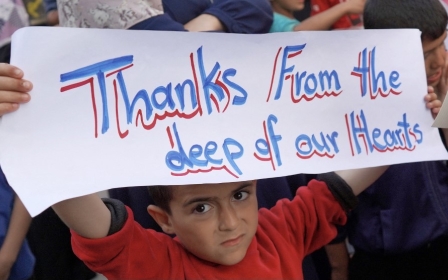Doomsday is looming in the occupied West Bank, and the PA carries on as usual

Over the past week, I haven’t slept well - not because of bombs or the constant threat of Israeli incursions, but because of our municipality’s relentless late-night construction.
Here in Ramallah, as Gaza has been reduced to rubble and its people endure unspeakable atrocities, our local government has deemed this the perfect time to rip up the streets and replace pipelines. Timing, as they say, is everything.
The absurdity of this moment is overwhelming. It starkly contrasts with the pivotal role municipalities, as part of the political leadership guiding the Palestinian struggle, played during the First Intifada.
Back then, local municipalities were integral to grassroots resistance. They coordinated civil disobedience, fostered community resilience, and provided governance under unimaginable constraints.
Today, this sense of purpose has all but evaporated.
New MEE newsletter: Jerusalem Dispatch
Sign up to get the latest insights and analysis on Israel-Palestine, alongside Turkey Unpacked and other MEE newsletters
The “business as usual” approach in the face of an ongoing genocide just kilometres away, and the feeling of doomsday looming in the occupied West Bank, doesn’t merely highlight the decline in the role of municipalities; it lays bare the complete dysfunction of the Palestinian political system.
From local councils to political parties and the Palestinian Authority (PA), the collapse is undeniable. The PA’s irrelevance has been apparent for years, but its impotence in the shadow of current events is staggering.
Collective trauma
At this point, only the PA and its institutions seem to be carrying on as if life is normal. For the rest of us, the facade of normalcy is a thin veil over collective trauma and deep grief.
Yes, restaurants, bars and cafes are open. People wake up and go to work. Kids attend school. Occasionally, we gather for dinners to soothe our anxieties. But these moments are not markers of normal life; they are coping mechanisms. We are trapped in a liminal space, suspended in time, clinging to a sense of routine while anticipating the next episode in this ongoing catastrophe.
If anyone doubts the grim fate we fear, they need only look at the events of the past few months. Settler attacks on Palestinian villages are constant - burning homes, cars and olive groves. These assaults don’t just destroy property; they leave scars on our people, sometimes claiming lives and always sowing terror.
Follow Middle East Eye's live coverage of the Israel-Palestine war
In Jenin and Tulkarm, the attacks have been even more devastating. Refugee camps have been targeted with such ferocity that their entire infrastructure has been reduced to rubble.
Entire families have been wiped out in a single strike. These are not isolated incidents; they are deliberate, systematic campaigns to obliterate what little remains of our safety, stability and hope.
It’s not the immediate horror of bombs falling from the sky, like in Gaza, but a slow, grinding erasure- a suffocation of hope and life
Meanwhile, the economy in the West Bank continues to crumble, suffocated by an ever-tightening stranglehold of movement restrictions. Israeli military's checkpoints now dominate the entrances and exits of almost every town, city, and village, turning even the simplest journey into an ordeal of humiliation and fear.
The atmosphere here is apocalyptic, though in a different way from Gaza. It’s not the immediate horror of bombs falling from the sky, but a slow, grinding erasure- a suffocation of hope and life.
We are watching our lives and future being stolen, piece by piece, in plain sight.
The uncertainty is maddening - not just because of the genocide unfolding in Gaza, but because of what we fear is coming to the occupied West Bank.
The blueprint is more clear than ever with the upcoming Trump presidency: full annexation of the West Bank, anticipated ethnic cleansing in Area C, and the systematic dismantling of any semblance of Palestinian statehood - or even existence.
This plan has been years in the making, driven by settlers who are emboldened and protected by the Israeli military. But its full implementation now appears imminent, casting a shadow over what little remains of our future.
A British aid worker I recently spoke with described Ramallah as a “bubble”, claiming that life here continues as usual. It’s hard to think of a more detached or delusional observation.
Yes, Ramallah, as an economic hub, might seem less affected on the surface. But beneath that veneer, everyone here - just like in every other West Bank city - lives with the suffocating anticipation of a dark and uncertain future.
Life slipping away
Gathering for dinner doesn’t carry the joy of celebration anymore. Instead, it has become a refuge - a place where we can share our grief, voice our fears, and hold onto one another as the ground beneath us crumbles.
These moments are less about living, and more about surviving; about making the unbearable slightly more bearable, if only for an evening.
Even stepping out for a hike, a brief escape into the land we love, carries a heavy sadness. As we walk among the olive trees - trees our ancestors planted, which hold centuries of stories and roots - we can’t help but feel like we’re saying goodbye.
There’s a haunting sense that soon these groves will be lost, stolen by settlers from Brooklyn or bulldozed into oblivion. What should be a moment of connection with our land becomes a mourning of what we may be on the verge of losing.
Every attempt to hold onto something familiar, something grounding, feels tinged with sorrow - not just for our people in Gaza, but also because deep down, we know we’re grasping at the last threads of a life that’s slipping away.
Maybe the municipality and other PA institutions are carrying out work as usual. Maybe we all need to pretend that life isn’t falling apart. But the truth is far messier, far more painful, and far more terrifying than any facade can conceal.
We are a people without political leadership or a plan, bracing for what feels like our demise.
The views expressed in this article belong to the author and do not necessarily reflect the editorial policy of Middle East Eye.
Middle East Eye delivers independent and unrivalled coverage and analysis of the Middle East, North Africa and beyond. To learn more about republishing this content and the associated fees, please fill out this form. More about MEE can be found here.





